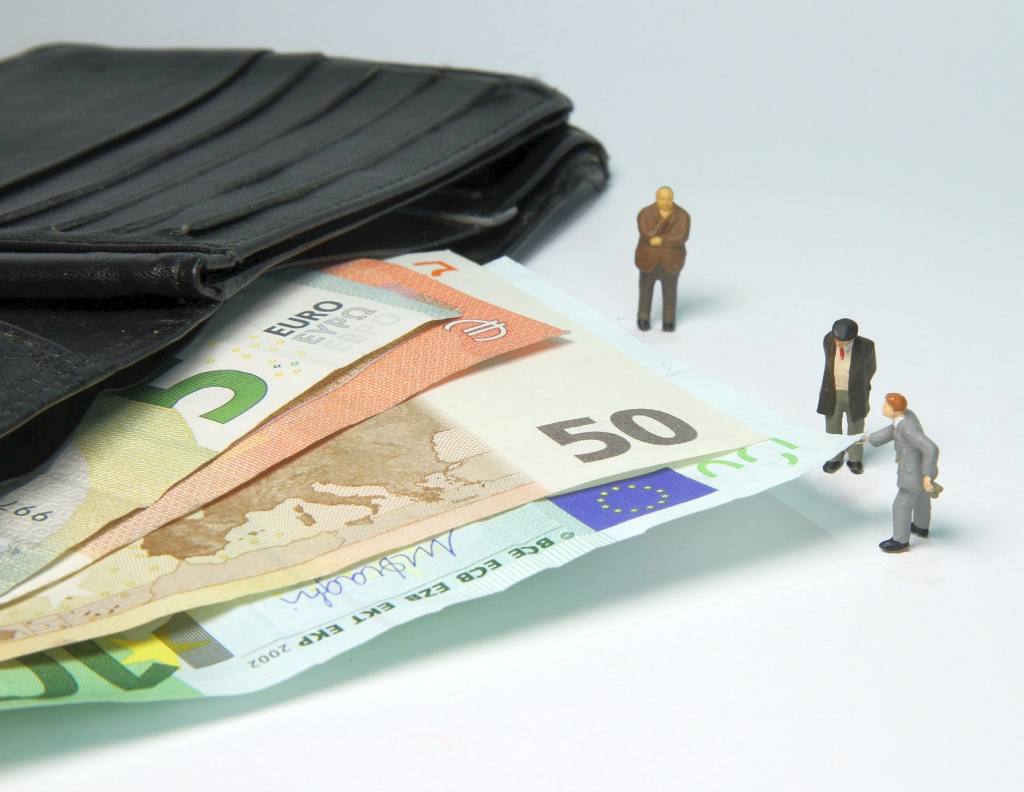
IESE Insight
Values Against Violence: Taking on the Mafia
In Sicily, anti-Mafia movement called Addiopizzo is challenging the vicious cycle of paying protection money (pizzo) to the Mafia.
zolence, intimidation and social isolation. Individuals have a hard time fighting back.
Yet a movement called Addiopizzo — meaning "goodbye to the pizzo" or "goodbye to extortion" — has been shaking things up over the past decade, using positive values and a corruption-fighting coalition to undermine the mob. IESE's Antonino Vaccaro, along with co-author Guido Palazzo, studies Addiopizzo's methods in an article published in the Academy of Management Journal.
Drawing on interviews and data collected in the field between 2004 and 2012, the article details the painstaking process that Addiopizzo uses to turn Sicilian business owners against the pizzo, a central pillar of the Mafia's power over the region. Ultimately, the Addiopizzo movement aims to shift societal values away from those propagated by the Mafia over the past 150 years in this part of Italy. Using values against violence, Addiopizzo's methods may be applied to help uproot other crime syndicates — such as Japan's Yakuza, Kenya's Mungiki, the Triad in Hong Kong, the East European Mafias. The research also presents a compelling case for using market-based strategies to tackle social issues.
Mob Rule
Before Addiopizzo, most Sicilian business owners regularly paid "protection money" (pizzo) to the Mafia. It's extortion. Monthly payments range from 60 euros to 10,000 euros, depending on the size and type of business. Paying the pizzo is technically illegal, but failing to pay generally carried far greater risks.
Look what happed to Libero Grassi, owner of a clothing factory in Sicily, who announced his refusal to pay pizzo in an open letter to a newspaper in January 1991. By taking his solitary stance against corruption, Grassi was criticized publicly for giving Sicily a bad name. Increasingly socially isolated, he was also threatened by the mob. By the end of August he was dead, gunned down by a Mafia killer.
Such methods are business as usual for the Mafia, which famously enforces payment through threats, outright violence and destruction of property. To avoid backlash, the Mafia works to isolate its victims first, turning them into social pariahs before taking direct action against them. Neighbors and other businesses are encouraged to shun non-payers, in order to stay on the right side of the mob.
The Mafia's greatest strength is the social validity it has managed to claim, warping community values in its favor over time. The mob conveys the refusal to pay protection money as a failure, rather than an act of courage. The pizzo is so established a part of everyday life that it becomes incredibly difficult to challenge.
Fighting Back
A group of seven friends just leaving school and entering the job market launched the first Addiopizzo campaign in June 2004, putting up hundreds of anti-pizzo posters in Palermo. The message, "A society that pays the pizzo is a society without dignity" caught the public's attention and sparked widespread debate. They followed this up by encouraging consumers to buy only from shops that refused to pay protection money.
Addiopizzo campaigners then worked to raise awareness in schools before targeting business-owners and creating a certified list of pizzo-free shops. With this message, there were no individual heroes sticking their necks out alone. A coalition against the pizzo was born.
In 2007 they founded Libero Futuro, an initiative that helps anti-pizzo entrepreneurs to connect with each other, lawyers and the anti-Mafia police.
Although there are still significant difficulties in persuading people to stand together against an organization as powerful as the Mafia, Addiopizzo has been Sicily's most successful anti-protection-racket campaign to date. By 2011, over 10 percent of Palermo entrepreneurs had signed up and many others have started to actively fight against the Mafia. "Addiopizzo's success signifies an unprecedented achievement for the anti-Mafia cause, and has proved that the pizzo is not as irremediably stable as Sicilians had believed for more than 150 years," the co-authors write.
Moving Beyond Heroes... to Institutional Change
Addiopizzo worked to redefine dignity, security and solidarity, values that had been twisted to serve the Mafia's purposes. Newly framed, dignity means refusing to cooperate with organized crime, and solidarity means standing together against the mob.
Equally important, Addiopizzo works hard to minimize the risks for those who join them. By creating networks and safe spaces for entrepreneurs to discuss problems and strategies, they provide safety in numbers, making it harder for the Mafia to isolate and target rebellious business owners.
Addiopizzo works via a careful five-step process to bring stakeholders — including business owners (facing the most risk), students and other community members (who might otherwise view the pizzo as unavoidable and normal) — on board:
- Hooking: The activist builds trust with the stakeholder, emphasizing that moral and community values are important to both of them.
- Anchoring: The activist highlights the Mafia's damaging impact on Sicilian society and contrasts this with other developed countries.
- Activating: The activist and the stakeholder discuss how values like dignity and security would be understood in an ideal world. Ultimately, the stakeholder develops an action plan for anti-Mafia behavior.
- Securing: Stakeholders are invited to meet with other Addiopizzo supporters in safe spaces.
- Uniting: Addiopizzo creates social networks of stakeholders and builds ties between them and the police.
"The Addiopizzo initiative, which targeted a fundamental change of a highly change-resistant institution, was not based on extreme actions, but on the more elaborate and patient transformation of taken-for-granted meanings of values," the co-authors summarize.
The era of the hero activist is over, with cooperation and bottom-up activism creating meaningful momentum. And the changes don't have to stop with Addiopizzo: its success fighting the Mafia should prove an inspiration to other social campaigns working to uproot corruption or other social problems.
